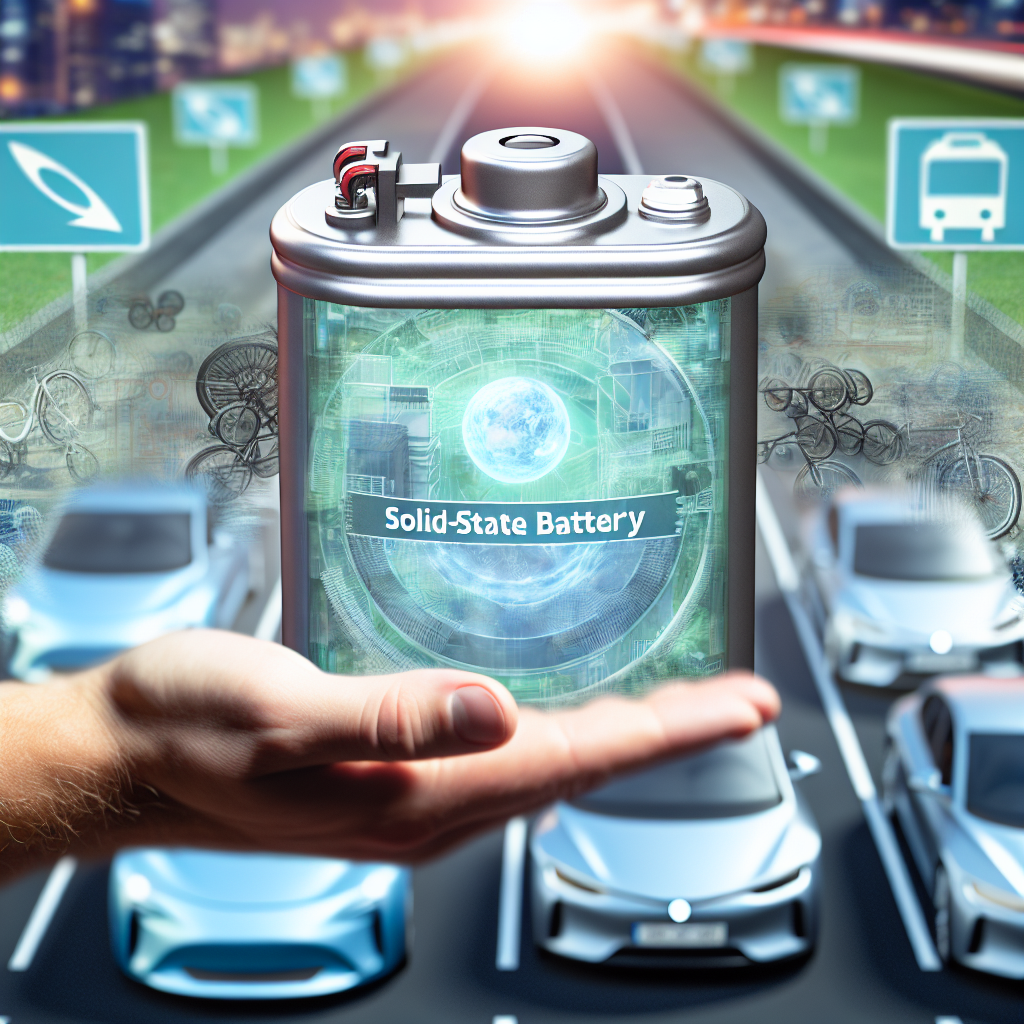The Future of Electric Vehicles: Solid-State Batteries
Electric vehicles (EVs) have rapidly gained popularity in recent years as a more sustainable alternative to traditional gasoline-powered cars. However, one of the main challenges facing EV technology is the limitation of battery capacity and range. This is where solid-state batteries come into play. Solid-state batteries are the next big revolution in electric vehicle technology, promising longer ranges, faster charging times, and improved safety compared to traditional lithium-ion batteries.
The Science Behind Solid-State Batteries
Solid-state batteries differ from traditional lithium-ion batteries in that they use solid electrolytes instead of liquid electrolytes. This solid-state design offers several advantages, including higher energy density, longer lifespan, and improved safety. Solid electrolytes are not prone to leakage or combustion, making them a more stable and reliable option for powering electric vehicles. Additionally, solid-state batteries can be manufactured in a variety of shapes and sizes, allowing for more flexibility in design and integration into different vehicle models.
Advantages of Solid-State Batteries:
- Higher energy density
- Longer lifespan
- Improved safety
- Flexible design options
The Impact on Electric Vehicle Range
One of the most significant benefits of solid-state batteries is their potential to revolutionize electric vehicle range. With higher energy density and improved efficiency, solid-state batteries can store more energy in a smaller space, allowing for longer driving distances on a single charge. This extended range is a game-changer for EV owners, addressing one of the main concerns when it comes to adopting electric vehicles as a primary mode of transportation.
The Future of Electric Vehicle Charging
In addition to longer range, solid-state batteries also offer faster charging times compared to traditional lithium-ion batteries. The design of solid-state batteries allows for more efficient charging and discharging processes, reducing the time it takes to recharge an electric vehicle. This improved charging speed is essential for increasing the convenience and practicality of EVs, making them a more viable option for everyday use.
Conclusion
Solid-state batteries are poised to revolutionize the electric vehicle industry, offering higher energy density, longer range, improved safety, and faster charging times. The adoption of solid-state batteries in EVs represents a significant step forward in sustainable transportation and will play a crucial role in reducing carbon emissions and combating climate change. As technology continues to advance, the future of electric vehicles looks brighter than ever with the potential of solid-state batteries leading the way towards a more sustainable and efficient transportation system.
